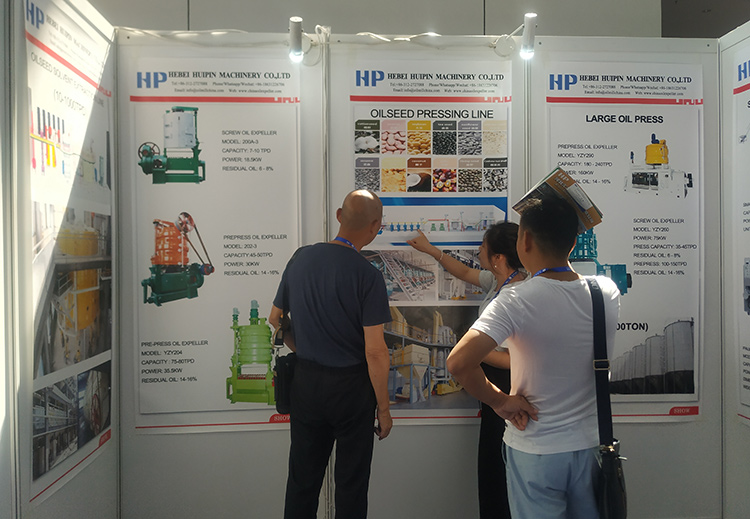Aug . 09, 2024 15:45 Back to list
Efficient Oil Extractor for High-Quality Seed Processing and Extraction Solutions
High-Quality Seed to Oil Extractor A Sustainable Choice
In recent years, the demand for high-quality oil extracted from seeds has grown significantly, driven by the increasing awareness of health benefits and culinary versatility. This has prompted the development of advanced seed-to-oil extraction technologies, which ensure that consumers receive maximum nutritional value without compromising on quality. Let's explore the journey from high-quality seeds to oil extractors, examining the benefits of this sustainable process.
The Importance of High-Quality Seeds
The extraction of oil begins with the selection of high-quality seeds. Seeds are the foundational building blocks for oils, and the quality of these seeds plays a key role in the final product. High-quality seeds are typically sourced from reputable suppliers who prioritize organic and sustainable farming practices. These seeds not only have a higher oil yield but also possess better nutritional profiles, rich in essential fatty acids, vitamins, and antioxidants.
Popular seeds used in oil extraction include sunflower, flaxseed, sesame, and pumpkin seeds. Each type of seed offers unique health benefits, making the choice of seed crucial for those looking to optimize their dietary intake. For example, flaxseed oil is praised for its omega-3 content, while pumpkin seed oil is rich in magnesium and zinc.
The Seed to Oil Extraction Process
Once high-quality seeds are selected, the extraction process begins. Traditional methods, such as cold pressing or expeller pressing, are favored for producing premium oils. Cold pressing involves crushing the seeds without the application of heat, preserving the natural flavors, nutrients, and aroma of the oil. This method is particularly effective for seeds that have a high oil content and are sensitive to heat, such as flaxseeds and hemp seeds.
Modern oil extractors are designed with advanced technology that enhances efficiency and maintains quality. These machines are often equipped with features like temperature control and filtration systems that ensure the extracted oil is pure and free from impurities. The integration of such technology not only improves yield but also reduces waste, making the process more environmentally friendly.
high quality seed to oil extractor

Health Benefits of High-Quality Seed Oils
The health benefits of high-quality seed oils are extensive. They are an excellent source of essential fatty acids, which are crucial for heart health, reducing inflammation, and supporting overall wellness. For instance, oils extracted from omega-3-rich seeds can help lower blood pressure and improve cholesterol levels.
In addition to fatty acids, seed oils are rich in antioxidants, which combat oxidative stress and may help reduce the risk of chronic diseases. Many seed oils are also packed with vitamins, such as vitamin E, which plays a vital role in skin health and immune function.
Choosing the Right Oil Extractor
When it comes to extracting oil at home or for small-scale production, selecting the right oil extractor is essential. Consumers should look for machines that are specifically designed to handle the type of seeds they wish to process. Features to consider include extraction capacity, energy efficiency, and ease of cleaning.
Investing in a high-quality oil extractor ensures that individuals can produce their own oil from the comfort of their kitchens, thereby retaining full control over the quality and sustainability of the final product.
Conclusion
The journey from high-quality seeds to oil extraction is a reflection of the growing interest in health-conscious choices and sustainable practices. By prioritizing quality seeds and utilizing modern extraction methods, consumers can enjoy a range of nutritional benefits that contribute to their overall health. As the demand for natural and nutritious oils continues to rise, the seed-to-oil extraction process will undoubtedly play a critical role in fostering a healthier lifestyle for many. Embracing this journey not only promotes well-being but also supports sustainable agricultural practices in the long run.
-
High-Efficiency Peanut Oil Refined Machine for Quality Oil Production Leading Exporters & Companies
NewsJul.08,2025
-
High Efficiency Sunflower Seed Oil Press – Leading Cooking Oil Press Machine Factories & Suppliers
NewsJul.08,2025
-
High-Efficiency Soybean Oil Press Machine – Leading Exporters & Reliable Companies
NewsJul.07,2025
-
High-Efficiency Seed to Oil Extractor – Reliable Extraction Machinery for Your Business
NewsJul.07,2025
-
High-Quality Pressing Screw of Oil Expeller for Efficient Oil Extraction Leading Exporters & Manufacturers
NewsJul.06,2025
-
High-Efficiency Essential Oil Extraction Machine Trusted Exporters & Companies
NewsJul.06,2025
